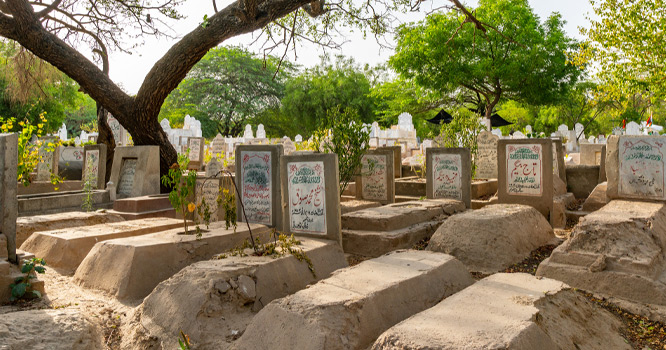
"Don't wear clean or new clothes. Don't kohl in your eyes. Don't laugh too much. Don't go to the market. Don't leave the house for work. Don't make new clothes for Eid. Don't apply henna." These restrictive phrases echo in the ears of those grappling with a recent death in the family—a brother, father, husband, or another close relative.
Recently, a friend's father passed away. After a week of mourning, she cautiously resumed her routine, marked by a lingering sadness. Despite concerted efforts to comfort her, she confided that even contemplating buying a new sweater triggered societal judgments. Expressing a desire for normalcy faced disapproval, with neighbors insensitively commenting on her supposedly premature return to daily life.
This societal perspective raises questions about the imposition of prolonged mourning practices beyond the three-day limit stipulated in Islam. Islam, with its compassionate and balanced approach, does not advocate for a perpetual state of grief. The three-day mourning period, a religious guideline, clashes with societal expectations that often amplify the grieving process indefinitely.
Also Read: Over 28,000 Nomination Papers Submitted Nationwide for General Elections
The social pressure to conform to arbitrary restrictions, from clothing choices to everyday activities, highlights a disconnect between religious teachings and societal attitudes. Islam does not endorse the idea that those mourning must confine themselves to a life of perpetual sorrow, forsaking cleanliness, new clothes, or the joy of celebration.
Moreover, a concerning observation emerges—beyond the prescribed mourning period, daily visits persist, inadvertently reviving grief for the bereaved family. Even on festive occasions like Eid, the intrusion of well-meaning visitors compounds the challenge of moving forward. Islamic teachings emphasize support and empathy but discourage actions that prolong sorrow.
It is imperative to challenge these societal norms and align them with Islamic principles. Instead of perpetuating grief, we should encourage and appreciate the gradual return to normalcy for those who have lost a loved one. Society should be a source of solace, not an obstacle to healing. The emphasis should be on helping families reintegrate into their routines, fostering resilience rather than perpetuating grief.
In essence, a call to eliminate these stifling norms arises. Families navigating loss should be met with understanding and encouragement as they reclaim a sense of normalcy. Acknowledging the prescribed mourning period in Islam, society should refrain from extending grief beyond its religiously defined limits. In doing so, we uphold the essence of compassion and support embedded in our shared humanity.